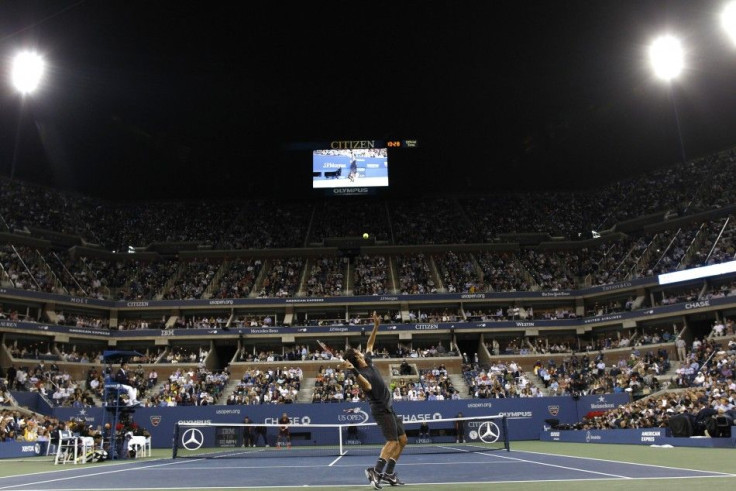Player Revolt Gets U.S. Open Finals Moved

The U.S. Open will slide into a third week after organizers of the last grand slam of the year bowed to player pressure Thursday and agreed to change the finals schedule.
The women's singles final, originally set for Saturday night, was moved to Sunday afternoon while the men's championship decider, initially planned for Sunday, the 10th anniversary of the September 11 attacks, was shifted to Monday.
It is the fourth year in a row that the U.S. Open has gone over schedule because of bad weather although officials could still have finished on time this year, even after two days were washed out by rain.
Leading players, including defending men's champion Rafa Nadal, complained the men's draw had become lopsided because of the weather delays, convincing officials and television broadcasters to cave in.
We revised the schedule for the remainder of the 2011 U.S. Open in an effort to be fair to the players and our ticketholders, tournament director Jim Curley said in a statement.
This is the result of a collaborative effort with the players, CBS Sports and tournament officials to address the issues that arose from the inclement weather earlier this week.
Nadal had led a player revolt against tournament officials who tried to make him compete during the drizzle Wednesday.
The Spaniard was upset that he would have to play four times in four days while players on the other side of the draw would only have to play three times.
That's not fair, but that's what it is, Nadal growled. If you don't have rest, you have a big chance not (to) be fit enough to play well (in) the next match.
VOCAL SUPPORT
Nadal found some vocal supporters in Andy Roddick, his quarter-final opponent, and Britain's Andy Murray, who looms in the semis.
We're still having to play four matches in four days rather than three in three, Murray said.
It's clearly an advantage. Anyone that plays sport will tell you that.
Roddick, who has been embroiled in a series of rows with officials over the state of the courts, said it was time players joined forces and took a stand on issues they felt strongly about.
I have been trying to tell people that talent normally wins in negotiations, the American added. If (U2 singer) Bono doesn't want to go on tour, then it all falls apart.
But until we unite as one voice, then we're not going to get what we want. Therefore, we don't have the right to complain about it.
In each of the last three years, the men's final has been held over until the Monday because of rain delays, triggering an annual debate over why there is still no roof.
The center courts at both the Australian Open and Wimbledon have retractable roofs, while organizers of the French Open plan to cover up their main court by 2014.
However, the USTA has balked at the idea because of the enormous cost of covering Arthur Ashe Stadium, the largest tennis stadium in the world.
Roger Federer, who also serves as the president of the Players Council, said he supported the decision to move the men's final to Monday.
But the five-time U.S. Open champion said it was time organizers changed their policy of starting the tournament by playing the first round over three days then finishing with back-to-back semi-finals and final on the last weekend.
Out of fairness to the bottom half of the draw, I think it's definitely the right thing to do (but)... the problem lies elsewhere, Federer said. This is the fourth year in a row I think we're playing a Monday final. Might as well just make it a Monday final, right?
I think the three early first rounds is not working, and then the Super Saturday I just think is not feasible at this point.
© Copyright Thomson Reuters 2024. All rights reserved.











